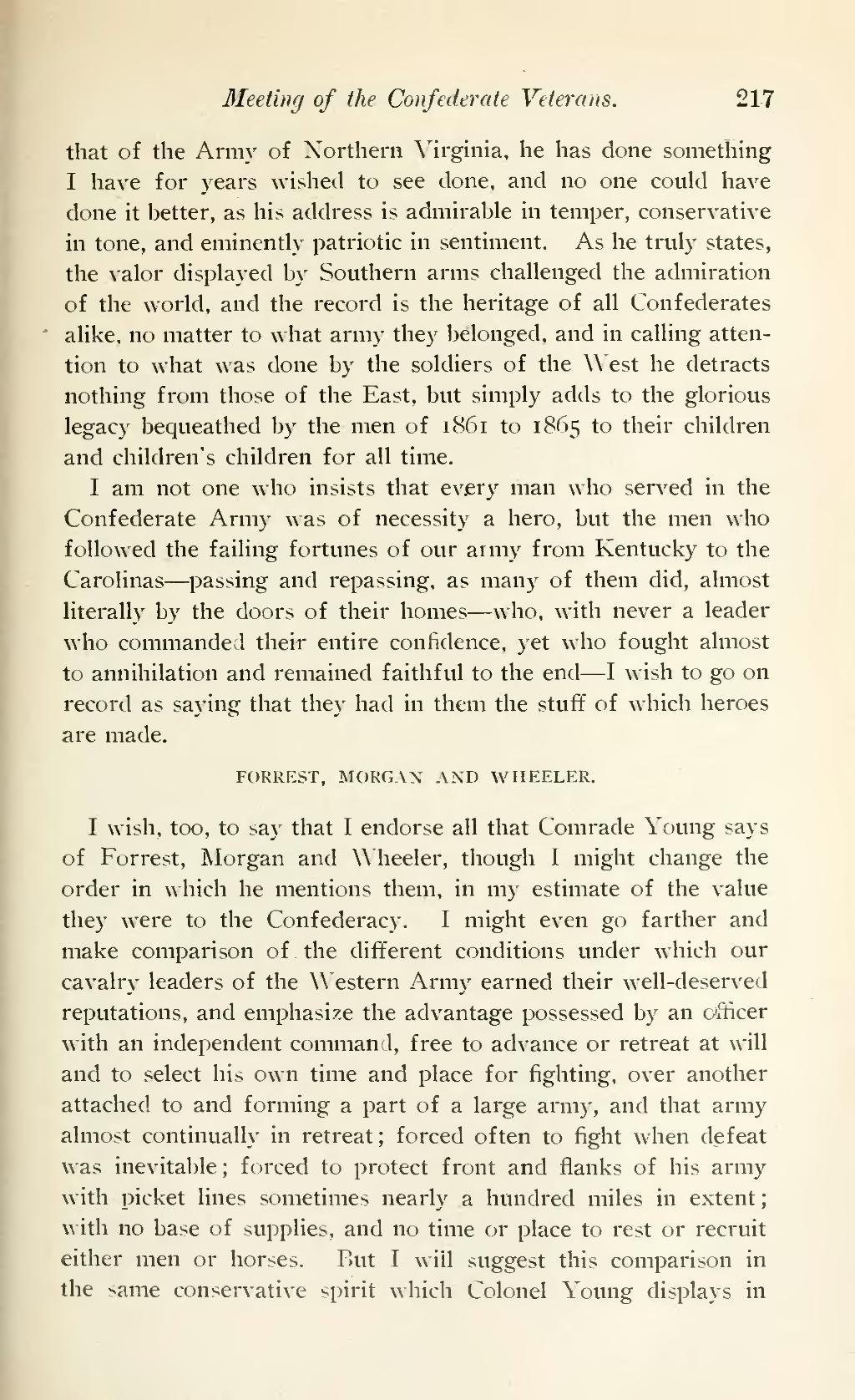that of the Army of Northern Virginia, he has done something I have for years wished to see done, and no one could have done it better, as his address is admirable in temper, conservative in tone, and eminently patriotic in sentiment. As he truly states, the valor displayed by Southern arms challenged the admiration of the world, and the record is the heritage of all Confederates alike, no matter to what army they belonged, and in calling attention to what was done by the soldiers of the West he detracts nothing from those of the East, but simply adds to the glorious legacy bequeathed by the men of 1861 to 1865 to their children and children's children for all time.
I am not one who insists that every man who served in the Confederate Army was of necessity a hero, but the men who followed the failing fortunes of our army from Kentucky to the Carolinas—passing and repassing, as many of them did, almost literally by the doors of their homes—who, with never a leader who commanded their entire confidence, yet who fought almost to annihilation and remained faithful to the end—I wish to go on record as saying that they had in them the stuff of which heroes are made.
FORREST, MORGAN AND WHEELER.
I wish, too, to say that I endorse all that Comrade Young says of Forrest, Morgan and Wheeler, though I might change the order in which he mentions them, in my estimate of the value they were to the Confederacy. I might even go farther and make comparison of. the different conditions under which our cavalry leaders of the Western Army earned their well-deserved reputations, and emphasize the advantage possessed by an officer with an independent command, free to advance or retreat at will and to select his own time and place for fighting, over another attached to and forming a part of a large army, and that army almost continually in retreat; forced often to fight when defeat was inevitable; forced to protect front and flanks of his army with picket lines sometimes nearly a hundred miles in extent; with no base of supplies, and no time or place to rest or recruit either men or horses. But I will suggest this comparison in the same conservative spirit which Colonel Young displays in
